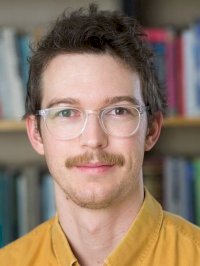Meet the Center’s Spring Visiting Scholar; Sigurd Eid Jacobsen Joins BU from Norway
Sigurd Eid Jacobsen is a Ph.D. candidate in Social Sciences at OsloMet. He is member of the research group Health and Welfare Studies at Norwegian Social Research (NOVA) and a collaborator on the project: Socio-spatial Inequality among Families with Children with Disabilities who are Entitled to Cash Benefits and Welfare Services (UPTAKE). Jacobsen is working on his PhD project, “Social Class, Institutional Navigation, and Disability in the Welfare State,” exploring how social inequalities frame how families with disabled children experience the social institutions in the welfare state. Jacobsen holds a MA in sociology (2019) from the University of Oslo, where he also was employed as a research assistant on several projects. After finishing his MA and until 2021, he was a part of the Section for Youth Research at NOVA where he worked with the Ungdata surveys and was particularly interested in social inequality in youth participation in organized leisure time activities. While a visiting scholar at CISS, he will work most closely with Dr, Nazli Kibria, a professor of sociology and member of the CISS Steering Committee. Learn more about Jacobsen below in an exclusive Q&A interview with CISS Communications Manager Lily Belisle.
What made you decide to be a social scientist/ why does social science matter to you?
I originally intended to become a teacher but when I had some introductory courses in sociology, I felt that the sociological way of looking at the world was really interesting. Looking at the world sociologically continues to fascinate me and has opened my eyes to how things we take for granted don’t necessarily have to be so.
Can you tell us about a recent research project that you’re excited about?
I am excited about the project Uptake (Socio-spatial Inequality among Families with Children with Disabilities) which my Ph.D. project is part of. We use different methods to provide insights into the delivery of benefits and services among parents of children with disabilities in Norway.
What has led you to the intersection of disciplines within which your expertise lies?
Like many sociologists, I guess you eventually start to look sociologically at your background. I grew up in a stable middle-class family in Norway with a disabled sister and this led me to discover disability studies. After this, I started researching how social class can be a factor in the lives of families with disabled children.
How does your research benefit from an interdisciplinary approach?
I am interested in many different topics and disciplines. I believe there are many advantages to your own research from not becoming too specialized but being open to other perspectives and topics.
What do you hope to accomplish during your time at BU?
I hope to gain a more comparative perspective on my research. I also hope to learn from the fantastic scholars that work here at BU and continue my academic development. Finally, I hope to enjoy Boston and discover how it is to live in another country far from home.